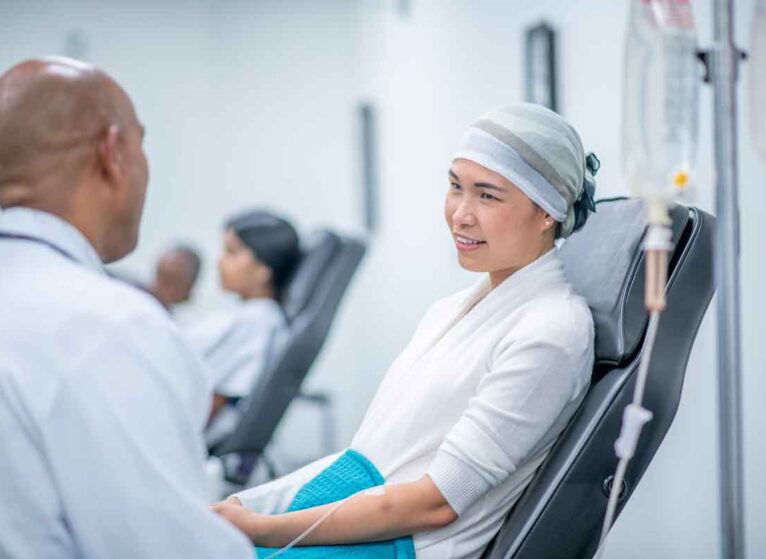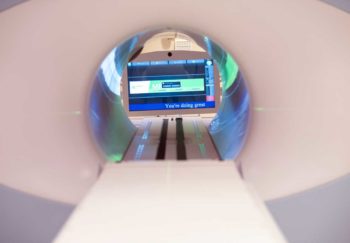Pancreatic cancer is rare. It makes up just 3.3% of new cancer cases in the U.S. It’s also one of the deadliest cancers. When caught early, though, it’s often treatable with surgery. The key is regular screening for people who are at high risk. But, who is at high risk for pancreatic cancer?
What is Screening for Pancreatic Cancer?
Pancreatic cancer is the third most common cause of cancer deaths. And it’s expected to move up to second place in the coming years. The 5-year survival rate is only about 12%, mostly because it’s usually diagnosed at an advanced stage when surgery, which is the only cure, isn’t possible.
In fact, pancreatic cancer is sometimes called a “silent disease." That's because many people don’t experience symptoms early on. Alex Trebek and Patrick Swayze are just two prominent people who weren't diagnosed with pancreatic cancer until it reached stage 4. Both died from the disease less than two years after diagnosis.
Screening looks for signs of cancer when there aren’t any symptoms. Most of us know about or have even had a cancer screening, like a mammogram or colonoscopy. There’s also a screening for people at risk for lung cancer. These screenings are good at catching cancers early. They've also increased survival rates for those 3 cancers. But many people don’t know there’s also a screening process for people at high risk for a form of pancreatic cancer called pancreatic ductal adenocarcinoma.
A recent study in the Journal of Clinical Oncology made the case for pancreatic cancer screening. The study looked at people enrolled in high-risk pancreatic cancer programs from 2014–2021. The results showed most of the patients who were diagnosed with the disease had stage I cancer. What’s more, most were still alive several years later. “The 5-year survival for them was 73%,” says Kathleen Haden, RN, MSN, ANP, who helps patients understand their pancreatic cancer risk at the UVA Health High Risk Pancreatic Cancer Screening Clinic. “It was the first study that really showed that surveilling higher risk people improved survival and outcomes.”
What’s Your Pancreatic Cancer Risk?
At UVA Health, our specialists use your family history and cancer genetic testing to determine your risk. Our high risk clinic was one of the first programs of its kind in the country. It was also named a National Pancreas Foundation Academic Center of Excellence for Pancreatic Cancer in 2022.
So who’s at high risk for pancreatic cancer and who needs to be screened? National Comprehensive Cancer Network guidelines say you’re high risk if you have:
- One first-degree relative (parent, sibling, child) and a second-degree relative (grandparent, grandchild, aunt, uncle, niece, nephew) with pancreatic cancer or who has died from the disease.
- More than 3 relatives on the same side of the family with pancreatic cancer or who have died from it.
- 2 or more family members with pancreatitis in multiple generations.
- Certain gene variants that raise your risk:
If you’re assessed and found to be at high risk, you’re eligible for yearly monitoring. Monitoring includes 1 of 2 tests: MRI or endoscopic ultrasound. These tests help us catch cancer early so we can treat it effectively. Research is ongoing to look for blood tests for screening.
“It’s important to know that only 10% of pancreatic cancer is linked to family history or genetics,” Haden says. “So even if you’re considered high risk, your chances of getting pancreatic cancer are still low.” You can read more about what puts you at risk for pancreatic cancer and take our pancreatic cancer risk assessment.
Worried About Your Risk for Pancreatic Cancer?
Get advice from UVA Health experts.
A Link Between Type 2 Diabetes and Pancreatic Cancer?
Genes may not be the only factor playing a role in pancreatic cancer. A 2005 study looked at people newly diagnosed with type 2 diabetes after age 50. It showed they were 8 times more likely than an average person to develop pancreatic cancer within 3 years.
Scientists are doing a new study to learn more about the connection between diabetes and pancreatic cancer. They’re also looking at whether blood tests and radiographic imaging can find pancreatic cancer in people with a recent type 2 diabetes diagnosis.
Preventing Pancreatic Cancer
How do we prevent pancreatic cancer altogether before it starts? While we can’t change our genetics or our family history, we do have some control when it comes to cancer prevention. Many of the risk factors for pancreatic cancer are the same as those for a lot of other cancers:
- Smoking
- Obesity
- Lack of physical activity
- Diabetes
Working on those risk factors can lower your risk for cancer and chronic illnesses. Haden recommends the free Anticancer Lifestyle Program. The program helps you make healthy choices to reduce your risk of cancer and encourages:
- Eating a healthy diet
- Getting regular physical activity
- Improving sleep habits
- Focusing on managing stress
- Building social and emotional support systems
- Reducing contact with toxins in food, household products, and other things
“We really can change our own DNA by how we eat, move our body, and decrease inflammation,” Haden says. “We know we can make our immune system work to fight cancer. That's what it's supposed to do.”


